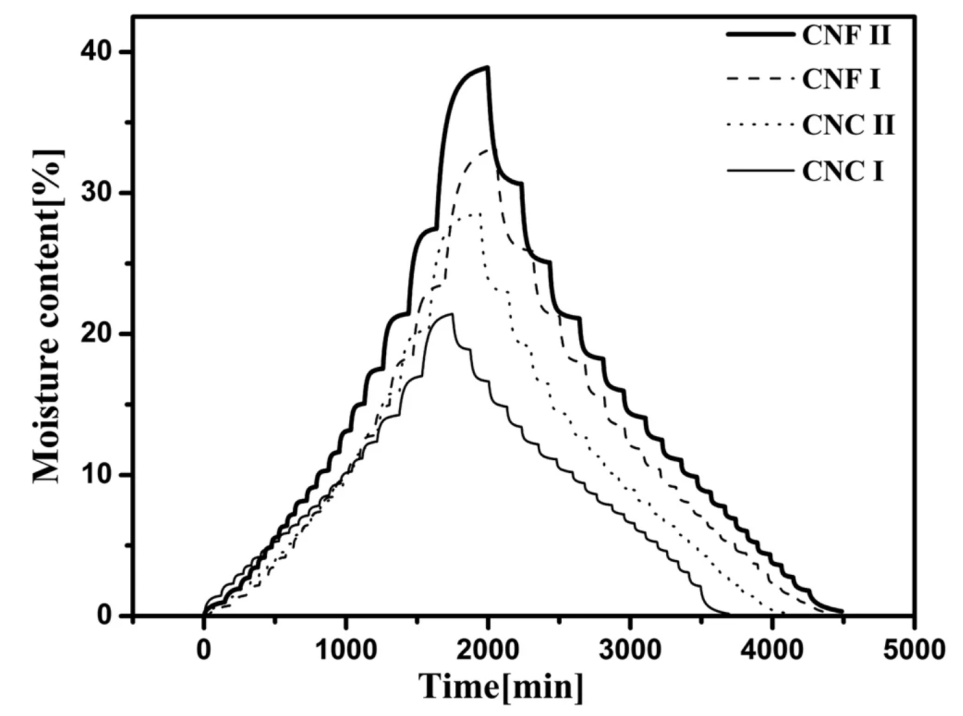Dynamic Vapor Sorption Analysis Service
-
Sorption and desorption isotherms
-
Hysteresis behavior
-
Kinetic and equilibrium parameters
-
Moisture-induced transitions and stability thresholds
Dynamic Vapor Sorption (DVS) analysis is a powerful gravimetric technique used to measure the interaction between a material and vapor molecules under precisely controlled humidity or solvent vapor conditions. By continuously monitoring the sample's mass change in response to varying vapor concentrations, DVS provides critical insights into sorption and desorption kinetics, equilibrium behavior, and the physicochemical properties of materials.
This technique plays a central role in characterizing hygroscopicity, phase transitions, and moisture stability of materials across industries such as pharmaceuticals, food science, biomaterials, and advanced polymers. It enables researchers to understand how environmental humidity or solvent vapor exposure affects material structure, stability, and performance.
Technical Principles
Dynamic Vapor Sorption analysis is based on a gravimetric method, where a microbalance measures minute mass changes of a sample as it is exposed to controlled partial pressures of a vapor (commonly water, but also organic solvents such as ethanol, acetone, or methanol).
During a DVS experiment, the sample is placed in a sealed chamber where the relative humidity (RH) or vapor concentration is systematically increased and decreased in steps. The system maintains a stable equilibrium at each step while continuously recording the sample mass.
The sorption and desorption processes follow distinct curves, from which key physicochemical properties can be derived, including:
These data reveal the binding strength of vapors to the sample surface, the number and nature of active adsorption sites, and structural changes such as crystallization, swelling, or polymorphic transitions.

Guo, X. et al. Sci Rep. 2017.
Figure 1. Moisture Content of Four Nanocellulose Samples During the Sorption Process
Service at MtoZ Biolabs
MtoZ Biolabs offers a comprehensive Dynamic Vapor Sorption Analysis Service using state-of-the-art instruments and robust analytical workflows. Our service allows quantitative determination of sorption isotherms, equilibrium moisture content, diffusion coefficients, and sample stability across different vapor types and environmental conditions. Whether your goal is to assess excipient compatibility, optimize formulation performance, or evaluate product shelf-life, our DVS solutions provide high-precision, reproducible results supported by expert interpretation.
Analysis Workflow

Service Advantages
☑️Advanced Platform: Equipped with high-precision gravimetric microbalances and humidity control systems for ultra-sensitive detection.
☑️High Data Quality: AI-assisted data modeling and statistical correction ensure accurate and reproducible outcomes.
☑️Comprehensive Support: End-to-end service from experiment design to data interpretation and result validation.
☑️Expert Team: Experienced analysts and material scientists specializing in adsorption, surface chemistry, and physical characterization.
☑️Customization: Flexible vapor types, temperature ranges, and analytical parameters tailored to project-specific goals.
Applications
1. Pharmaceutical Development
Evaluation of drug substance and excipient hygroscopicity, stability under humidity stress, and shelf-life prediction.
2. Food and Nutraceuticals
Determination of water activity, powder flowability, and moisture effects on texture and preservation.
3. Polymers and Coatings
Analysis of swelling, permeability, and solvent interaction behavior under varying vapor exposure.
4. Catalyst and Porous Materials Research
Characterization of surface area, pore accessibility, and adsorption kinetics of catalysts, zeolites, and metal organic frameworks (MOFs).
5. Cosmetics and Personal Care
Testing of moisture retention, product stability, and formulation robustness under humidity fluctuations.
Deliverables
Comprehensive Experimental Details: Full documentation of analytical parameters including instrument configuration, sample preparation, materials, and experimental conditions.
Raw Data Files: Complete datasets from sorption–desorption cycles, including gravimetric measurements and humidity or vapor concentration profiles.
Figures and Tables: High-quality graphs and tabulated data summarizing adsorption isotherms, kinetic parameters, and equilibrium results.
Customized Analytical Report: A detailed and project-specific report integrating data interpretation, thermodynamic insights, and scientific conclusions tailored to the client's research objectives.
How to order?







